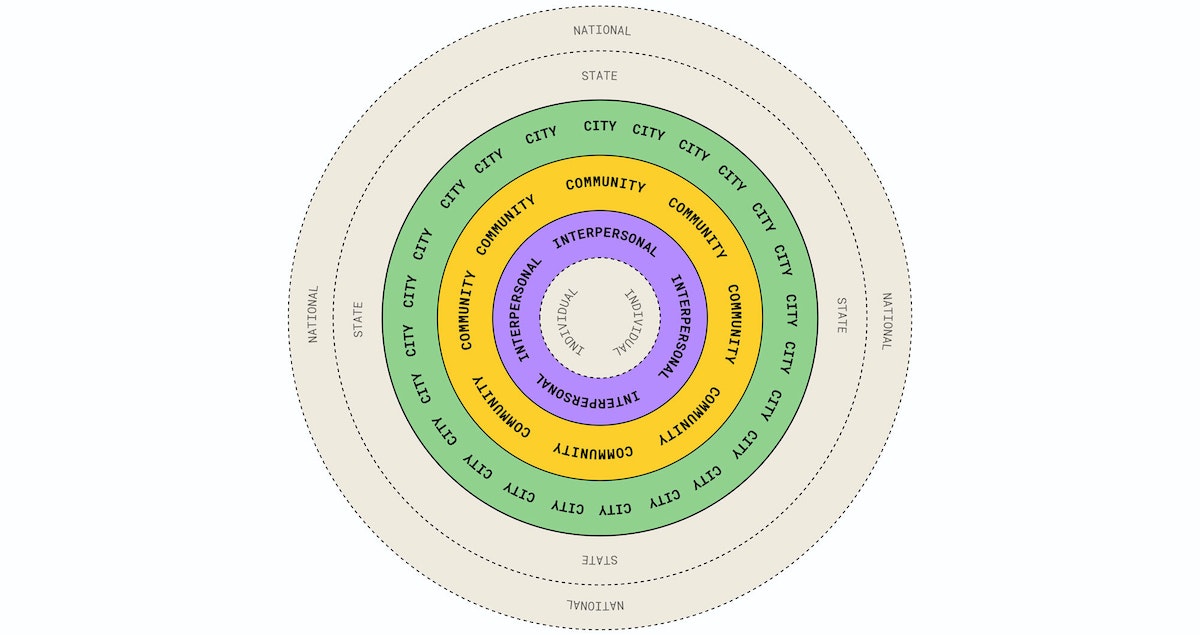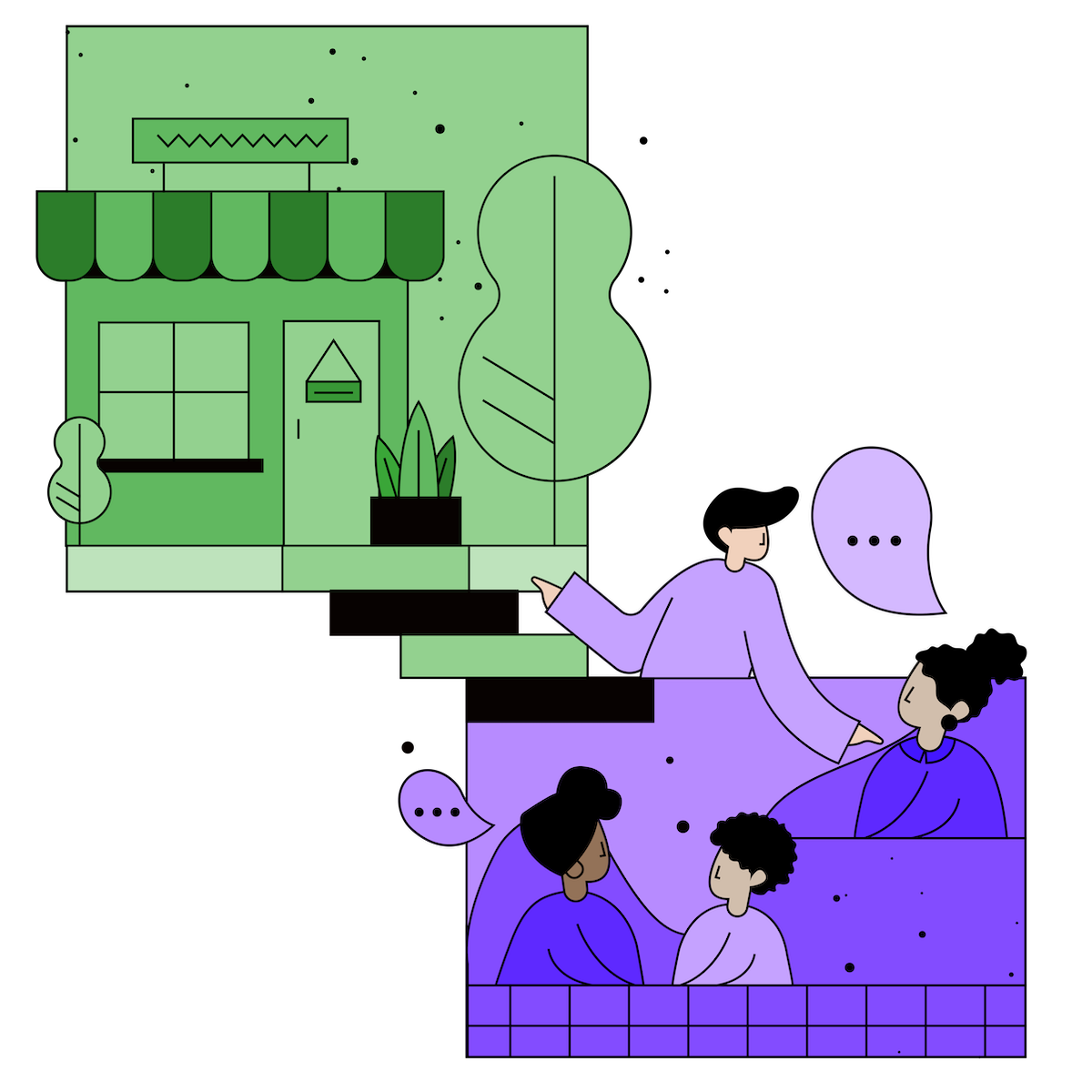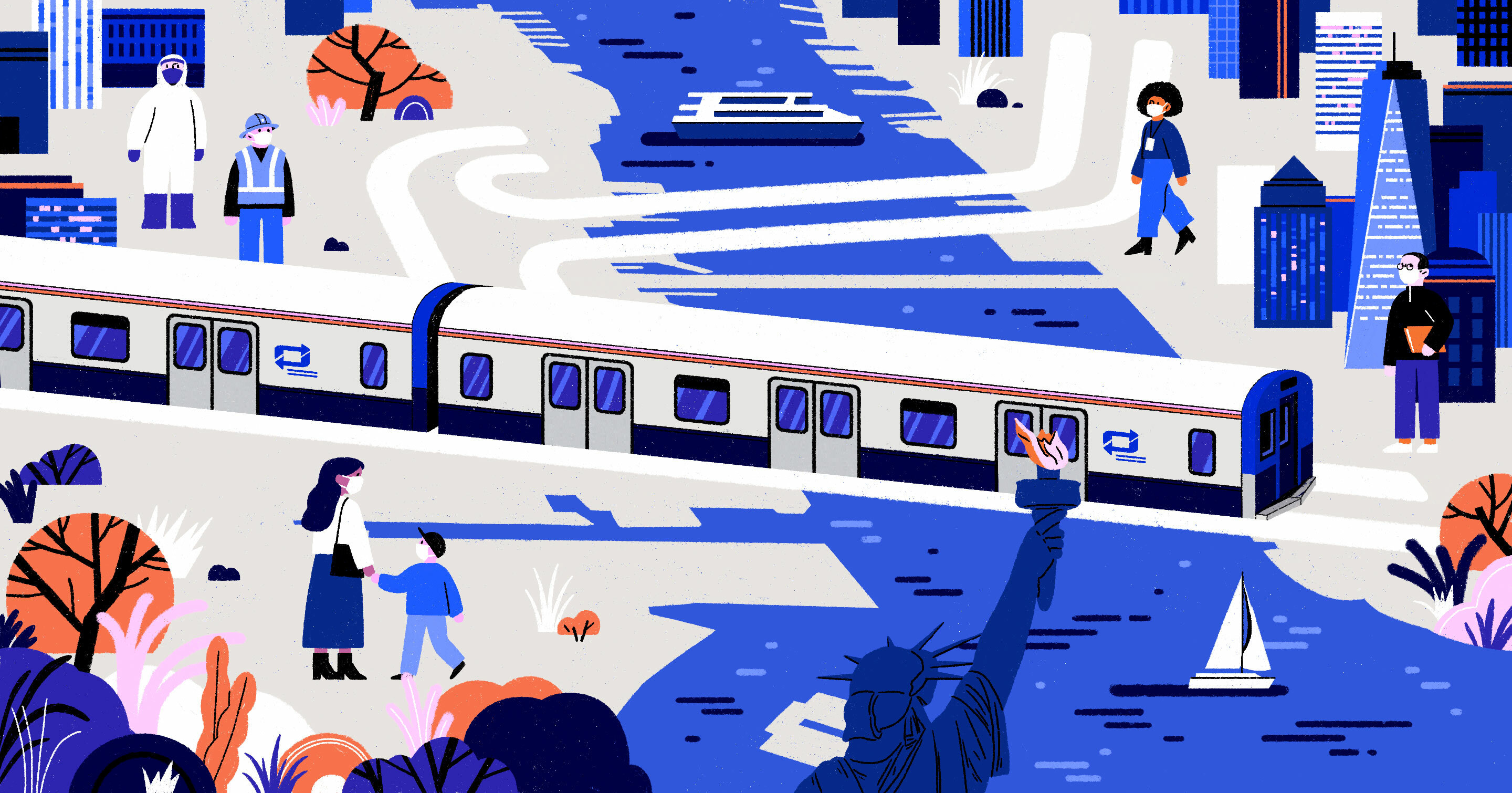Every business has a part to play in building better health

Yun believes the purpose of food is more than sustenance. Every dish is a cultural story and an ode to generational resilience.
Yun is one of hundreds of women entrepreneurs San Francisco’s beloved food business incubator La Cocina ( "The Kitchen" in Spanish) has supported over the last decade. Graduates from La Cocina have scaled industry barriers to establish restaurants and factories around the Bay Area, served millions of nutritious, multicultural meals, and generated tens of millions of dollars in sales. Yun’s story is one of success for one woman, but also for her family, her culture, and for a business that supports community health.
Business and community health can form a virtuous flywheel. Businesses thrive when their employees lead happier, healthier, and more productive lives. Communities thrive when the businesses that serve them support their health holistically. However, despite considerable investments in the healthcare system, the cycle has sputtered and stalled: every year, $2.6 trillion of productivity is lost to chronic disease. Businesses could play a broader role in addressing these inefficiencies and inequities, but investments in health have largely been limited to the traditional healthcare system and ignored where people live, work, learn, and play—in the space we call The First Mile of Health. By “First Mile Health” we mean making a deliberate effort to design for the patterns of everyday life that keep people well—emotionally, physically, financially, and socially. First Mile Health means creating and investing in businesses that provide compounding health benefits like intergenerational housing, food cooperatives, insurance to combat loneliness, and digital technologies that enhance trust and social cohesion.
What do we mean by the first mile? First Mile Health looks at people living their full life—not just their diet, exercise, insurance—not just things in isolation.
Animation by Claudio Fresneda
Building blocks for First Mile Health exist at the interpersonal, community, and city level.

Interpersonal: Nurture lasting relationships
The first mile of health is built on a basic human need: to relate with each other. As a species, humans rely on each other to survive and thrive. In today’s world where so much of our lives are digitally-mediated, it’s critical that our digital relationships foster mutual care and support.
If social media is the modern public square, today’s digital technology remains far from the agora of Athens or Central Park, places where people from diverse backgrounds gather and build shared understanding. Most social tech is still new in the grand scheme of things, and there's ample opportunity to develop them in a health-centered way. If we are to avoid the “social recession”—a loneliness epidemic exacerbated by COVID—digital experiences must help people spend meaningful time together, moving away from doom-scrolling and toward lasting relationships.
One positive example of this appears in IDEO data science research supported by the Robert Wood Johnson Foundation, which revealed that social media posts tagged as “inspiration” strongly correlate with posts about health. This signals that health can be a unifying topic that catalyzes positive conversation and builds social cohesion. Talking about health can lift people up, motivate them, and activate them toward taking care of their own well-being, sometimes just by giving the words to describe how they feel.
Health is also strongly correlated with personal identity, especially among younger people still in the process of learning and affirming who they are. When the pandemic hit, the social innovation organization Hopelab had been working on a tool called Nod, an intervention for loneliness among young people. At first, they determined that getting young people off their devices was the top intervention for tackling loneliness—but when COVID happened, they took a step back and asked, “What are the underlying principles of social connection?” and, “How can we build a tech-mediated intervention that will catalyze meaningful social connection digitally?” Nod shifted from a tech-centered framing—get kids off devices—to identity-centered framing based on principles such as positive psychology and mindful self-compassion to equip young people with the skills to nurture meaningful connections both online and offline.
How might digital products and services better support positive self-awareness and well-being?
How might we create digital experiences that feel like being in proximity with those we love? And importantly, how might we foster connections among those we don’t already know?
How might we design policies and regulations to ensure that digital experiences create reciprocal value for people and businesses?

Communities: Support local economic resilience
An inclusive local economy supports health: grocery stores that stock fresh produce, shared bikes and scooters to help people get around the neighborhood, small businesses and local services that connect and convene community members, and more.
Co-investments build strong, resilient local communities. Organizations that share economic power with communities at the local level are, in turn, more resilient themselves. Through co-investment, organizations and communities form a virtuous cycle. In the aftermath of the 2008 financial crisis businesses that diversified their community of co-investors were not only able to weather shocks, they were better set up to support the health and economy of the communities in which they operate in the long-run.
Businesses new and old are now taking part in a cooperative renaissance. Project Equity, a member of the Ashoka network of changemakers, is helping businesses transition to employee-ownership. Start.coop, a national accelerator for cooperative entrepreneurs, is advancing new business solutions addressing all of the social determinants of health. From creating affordable housing to increasing access to nutritious food, cooperatives have equity built into their DNA. These are examples of businesses that engage their community members beyond pure consumerism to become active decision-makers and co-designers of their local economies.
This cooperative renaissance is part of a bigger conversation to imagine a political economy that’s not centered on short-term value extraction but rather community health and wealth. From Platform Cooperative to Zebras Unite to RadicalxChange, the movement to build a new economy grounded in steward-ownership and long-term purpose is gaining momentum around the world.
How might we supercharge local entrepreneurship, starting with women and minority-owned businesses?
How might large businesses build local enterprises and steward-ownership models into their ecosystem in ways that create value for all?
How might innovations in the distributed web and decentralized governance enable alternative ownership and exit models?

Cities: Build multi-city coalitions
American cities are places of extremes: the most diverse places in the country and also the most unequal—a deadly intersection as shown by the disproportionate impact of COVID. Over the past few years, an experiment has been in the works in Stockton, California, the most diverse city in the country. For two years, Stockton’s former mayor, Michael Tubbs, gave $500 per month to 125 randomly selected residents living with low income. As the Stockton Economic Empowerment Demonstration (SEED) website describes it, “the cash was completely unconditional, with no strings attached and no work requirements.” Two years later, the data collected on the project has been released, and among other striking findings, one stands out: recipients of the funds were “healthier, showing less depression and anxiety, and enhanced well-being.” COVID demonstrated the compounding effects of an economic crisis on top of a public health crisis. In showing a way forward that solves for both, Stockton’s success story has catalyzed a coalition of mayors to launch guaranteed income pilots in 29 cities across the country. When decisions center on the diverse voices of those who live closest to the problem, cities can rise the tide and lift the health and wealth of all of their people.
Cities are effective units of change, where people could work on challenges that are big enough to matter and small enough to make things happen. When diverse partnerships of organizations rally around a shared purpose, cities become containers for collective imagination. One example of this shows up in Cities Changing Diabetes, a 36-city network advised by Gehl that conducts research, crafts strategy, and collaborates across cultures and geographies. The coalition creates neighborhood-level strategies for health that are unique to local conditions but offer lessons that can be applied across the network.
The 2020 census revealed the faces of a changing nation: a pronounced aging population and an increase in diversity among Millennials and Gen Z. Already home to eight out ten people over the age of 65, cities are the ground zero of these macro demographic shifts. Aging is a main risk factor of chronic diseases and COVID has made race-based health inequities abundantly clear. If business-as-usual persists, we will face a grave prognosis: an aging population burdened by chronic disease will be catastrophic for the American economy. The solution is as simple as it is inevitable: just as chronic diseases like diabetes and obesity are risk multipliers that devastate the economy, First Mile Health could be a resilience multiplier for both people’s health and the economy.
How might we create pathways for economic mobility for those who face the biggest barriers of systemic inequities?
How might we build trust between governments, businesses, and residents?
How might networks of cities unite across divisions and heal together?
Every business leader should see an opportunity in First Mile Health
First Mile Health is an “and” to all the work being done today. It’s shifting the mentality from fixing to designing. And we can only do that by seeing one another fully.
Depending on where you stand, you might see a different path toward First Mile Health. Healthier communities make better customers, making them and the businesses who serve them more resilient to unexpected threats such as pandemics; improved mental health and well-being generate higher levels of engagement; extended healthy lifetimes increase the talent and customer pools available to business; healthy family and work life encourages a sense of belonging, which in turn builds organizational knowledge; and lower health costs benefit all. All of these outcomes are examples of First Mile Health.
This week marks the grand opening of La Cocina Municipal Marketplace, the first women-led food hall in the country. This 7000 square foot development in the heart of the Tenderloin will give entrepreneurs who follow in Nite Yun’s footsteps an even bigger platform to innovate, while offering affordable, healthy food to longtime local residents. La Cocina Municipal Marketplace is an exemplar of First Mile Health: it serves as an inclusive gathering space for the community, a catalyst for business leadership from the ground up, and a demonstration project for health-centered economic development to inspire cities around the country.
Runners know that the first mile is always the hardest. When you start out, your body has to adjust to the new demands of physical activity. But as you run, your body adapts and the experience naturally starts to get easier. The same is true for First Mile Health: while the first mile might be the hardest, it will create many happier and healthier miles down the road. As Mark Twain said, “The trick to getting ahead is getting started.”
We wish to thank Steve Downs at Building H for his thought partnership and collaboration that helped shape First Mile Health.
Words and art



Subscribe

.svg)









